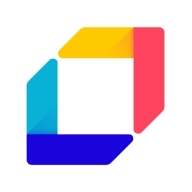

Prisma Cloud and Trivy are competitors in the cloud security domain. Prisma Cloud appears to have an upper hand in multi-cloud security and feature-rich offerings, while Trivy excels in ease of use and integration with CI/CD pipelines.
Features: Prisma Cloud offers dynamic workload identity creation, integration with AWS products, and network security. It provides multi-cloud security, automated forensics, and runtime protection. Trivy is valued for its open-source nature, effective in scanning containers and files, and its ease of integration into CI/CD pipelines. It excels in finding secrets and supports all major operating systems.
Room for Improvement: Prisma Cloud requires better documentation, enhanced API security monitoring, and improved integration of acquired components. Users highlight a need for a more intuitive interface and detailed compliance features. Trivy needs improved reporting, better runtime scanning, and a reduced false positive rate. Users also suggest improved vulnerability database and SIEM integration.
Ease of Deployment and Customer Service: Prisma Cloud is noted for its support across all cloud environments and multi-cloud deployments, though onboarding processes could be improved. Customer support receives mixed reviews due to occasional delays. Trivy is praised for simplicity and easy CI/CD integration, though it relies on community support which can vary from commercial support options.
Pricing and ROI: Prisma Cloud’s comprehensive features justify its high price, making it suitable for large enterprises. However, cost can be a concern for smaller organizations. Trivy is open-source and free, appealing to smaller companies with budget constraints, yet it offers significant value even where commercial solutions are available.
| Product | Market Share (%) |
|---|---|
| Prisma Cloud by Palo Alto Networks | 9.0% |
| Trivy | 4.9% |
| Other | 86.1% |

| Company Size | Count |
|---|---|
| Small Business | 36 |
| Midsize Enterprise | 22 |
| Large Enterprise | 56 |
| Company Size | Count |
|---|---|
| Small Business | 3 |
| Midsize Enterprise | 1 |
| Large Enterprise | 9 |
Prisma Cloud by Palo Alto Networks provides comprehensive cloud-native security solutions. It covers dynamic workload identity, automated forensics, and multi-cloud protection, ensuring robust security across diverse cloud platforms.
Prisma Cloud delivers advanced capabilities for managing cloud security across AWS, Azure, and GCP platforms. It offers dynamic workload identity creation, real-time monitoring, and seamless integration into CI/CD pipelines. With automation, centralized dashboards, and enhanced visibility, users effectively manage security misconfigurations and vulnerabilities. While optimizing cloud environments through runtime protection and compliance, Prisma Cloud faces challenges with its navigation, pricing, and limited automation capabilities. Users seek improvements in API security, role-based access controls, and documentation quality, emphasizing the need for enhanced customization and reporting features.
What are the important features of Prisma Cloud?
What benefits or ROI should users consider in reviews?
Industries like finance and telecom rely on Prisma Cloud for managing cloud security posture and container security. Teams utilize its capabilities across hybrid and multi-cloud settings to ensure compliance and robust threat protection. Features like misconfiguration detection and runtime monitoring are critical in promoting security objectives in these sectors.
Trivy offers comprehensive scanning for files, images, repositories, and infrastructure. It's open-source and integrates with CI/CD for vulnerability detection and security enhancement.
Trivy scans vulnerabilities in code, Docker images, containers, and infrastructure. It integrates seamlessly into DevOps pipelines, ensuring security in dependency management and open source vulnerabilities. This tool, lightweight and open-source, provides user-friendly reports and supports continuous vulnerability database updates, fostering ease of use across operating systems. Users benefit from its scanning capabilities, covering Kubernetes, AWS credentials, and GCP service accounts, effectively identifying vulnerabilities and misconfigurations.
What are Trivy's key features?In industries like technology and finance, Trivy is used extensively to secure applications, perform compliance checks, and offer security metrics visualization. It addresses microservices, container systems, and Kubernetes clusters security requirements, supporting DevOps teams and enhancing codebase analysis precision.
We monitor all Container Security reviews to prevent fraudulent reviews and keep review quality high. We do not post reviews by company employees or direct competitors. We validate each review for authenticity via cross-reference with LinkedIn, and personal follow-up with the reviewer when necessary.